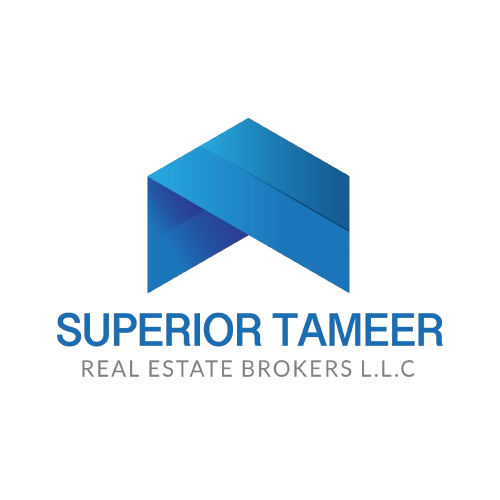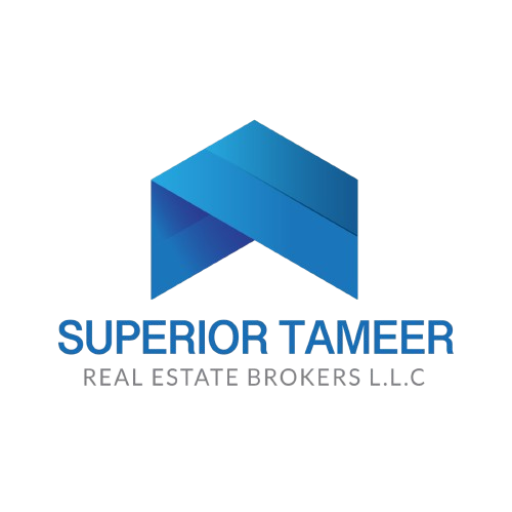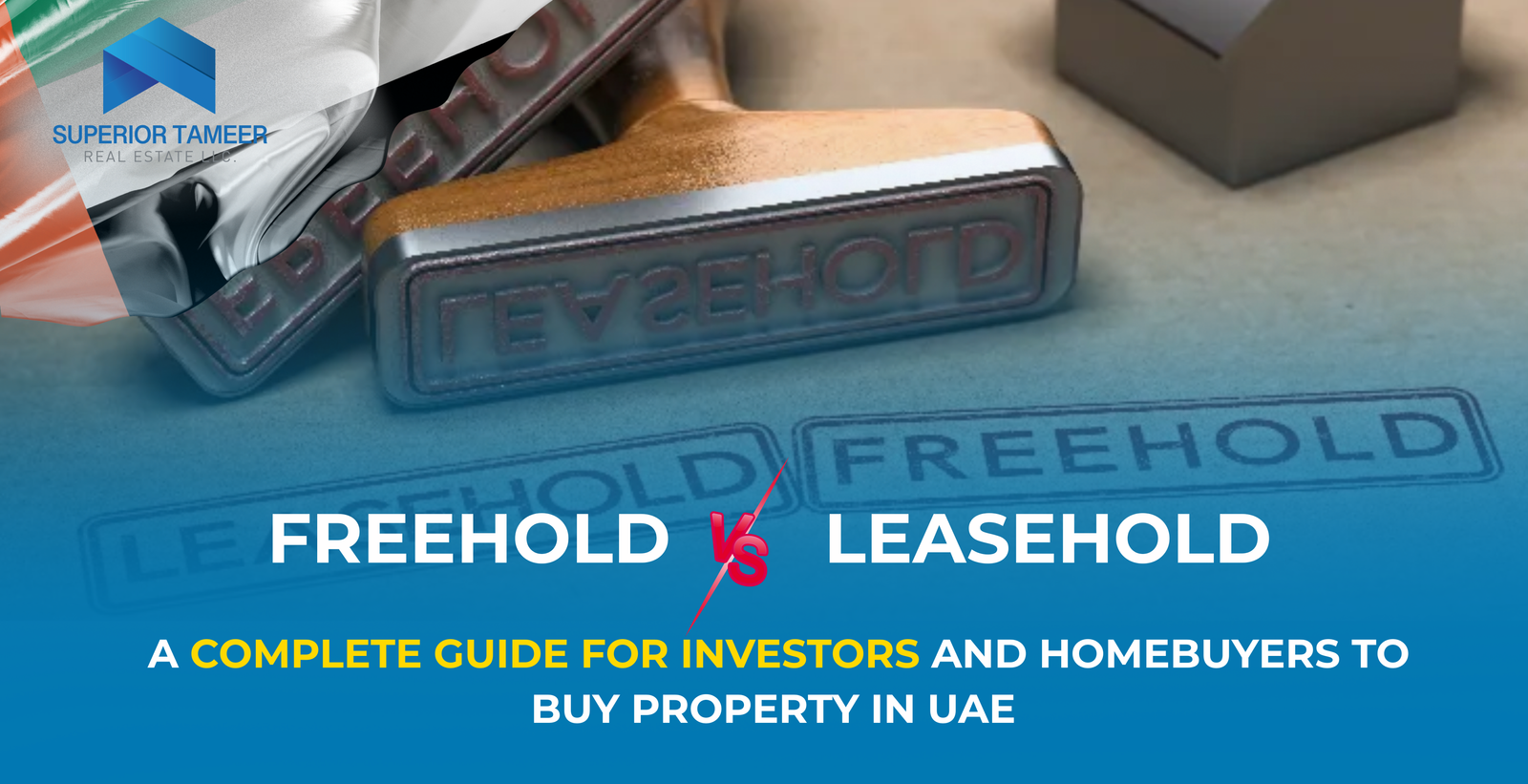Dubai’s property market has long been a magnet for global investors, from luxury waterfront villas to affordable off-plan apartments, the opportunities keep expanding.
But one of the most common questions buyers ask is:
“Should I buy freehold or leasehold property in the UAE?”
The difference isn’t just about the ownership title; it affects your control, long-term returns, and even eligibility for the UAE Golden Visa.
Let’s break it down clearly so you can make a confident decision whether you’re a first-time buyer or an experienced investor eyeing Dubai’s next big project.
What Does Freehold and Leasehold Mean?
Freehold property means complete ownership of the property and the land it stands on. You can sell, rent, renovate, or pass it on to your heirs without restrictions (subject to community regulations).
Leasehold, on the other hand, gives you the right to occupy or use the property for a specific period , typically 30 to 99 years. The land remains owned by the freeholder (usually a developer or government authority).
When the lease period ends, the ownership reverts to the freeholder unless the lease is renewed.
Why This Difference Matters:
Your ownership type determines:
-
Control , what you can do with the property
-
Duration , how long you can legally hold it
-
Rights , whether you can modify, sublet, or sell
-
Visa & Investment Eligibility , Golden Visa is tied to freehold
In short, freehold mean complete independence, while leasehold is directly proportional to temporary rights.
Pros and Cons of Freehold and Leasehold:
Freehold Areas in Dubai & UAE (Updated):
Foreigners and expats can only buy freehold property in designated zones approved by the Dubai Land Department (DLD). Some of the most popular freehold communities include:
These zones allow 100% foreign ownership and are often the most in-demand for investment and Golden Visa opportunities.
💡Bonus Tip:
“Always verify with DLD’s interactive map for latest freehold areas”
Understanding Leasehold Properties
Leasehold properties still play a role, particularly for investors seeking lower entry prices or for commercial use.
Key features:
-
Lease terms vary between 30 and 99 years
-
Usually offered in older or centrally located areas
- Ownership ends after lease term, unless extended
- Buyer has limited modification rights and must seek freeholder approval for major changes
For example, some prime areas near old Dubai or Jumeirah are leasehold zones , attractive for short-term value but not for long-term control.
Off-Plan Property: The Freehold Connection
Most off-plan projects in Dubai are sold as freehold , meaning when construction completes, you’ll receive a full title deed.
Advantages:
-
Lower prices and flexible payment plans
-
Potential for capital appreciation during construction
-
Access to new developments in premium zones
However, buyers should ensure:
-
The developer is RERA-registered
-
Payments go into a secure escrow account
-
The project is officially in a freehold zone
-
You receive an Oqood (interim registration certificate) from the DLD
While off-plan properties can be eligible for a Golden Visa, eligibility usually applies after completion and once ownership documents are issued.
Golden Visa Eligibility: Why Freehold Matters
If one of your goals is the UAE Golden Visa, ownership type becomes crucial.
To qualify through property investment:
-
Property value must be AED 2 million or more
-
Must be freehold, not leasehold
-
Can include mortgaged properties (if your paid share meets AED 2M threshold)
-
Property must be completed (not off-plan), though some off-plan projects nearing completion may be considered
-
Title deed must be in your name
Leasehold buyers are not eligible under the property route since they do not own the land or full property rights.
Step-by-Step: Buying Freehold or Leasehold Property
-
Check Ownership Type – Verify with the developer or DLD if the property is freehold or leasehold.
-
Choose RERA-Registered Developer / Broker – Always confirm legitimacy.
-
Review Payment Plan & Escrow Account – Especially for off-plan.
-
Sign the Sale & Purchase Agreement (SPA) – Legally binding contract.
-
Register with DLD / Obtain Title Deed – Confirms ownership rights.
-
Apply for Golden Visa (if applicable) – Through DLD’s “Invest in Dubai” portal.
Financial & Legal Considerations
-
Transfer Fee: 4% of property value (DLD fee)
-
Oqood Registration Fee: 4% (for off-plan units)
-
Maintenance Charges: Vary per community (annual)
-
Mortgage Cap: Usually 50–80% of property value depending on residency status
-
Legal Protection: All transactions overseen by DLD & RERA, ensuring transparency
Which Option is Right for You?
If your plan is long-term investment or relocation, go for freehold in prime areas. If you’re testing the market or focusing on short-term affordability, leasehold might suit , but with fewer rights.
In the end, whether you’re drawn to Dubai’s luxurious waterfront towers or its master-planned villa communities, understanding the difference between freehold and leasehold is vital before investing.
Freehold properties give you permanent ownership, freedom, and Golden Visa access, while leasehold properties provide short-term affordability with limited control.
Add in off-plan opportunities, strong rental yields, and Dubai’s investor-friendly environment , and it’s clear why the UAE remains one of the world’s top real estate destinations.
In the end, your decision should align with your goals, budget, and timeline.
Own smart, buy informed, and let your property investment in Dubai open doors , both literally and figuratively , to long-term growth and opportunity.
For detailed guidance, reach out to us on WhatsApp or give us a call for expert, personalized advice. At Superior Tameer Real Estate LLC, we’re committed to helping you enhance your property portfolio with trust, transparency, and proven expertise turning every investment into a step toward lasting growth.


